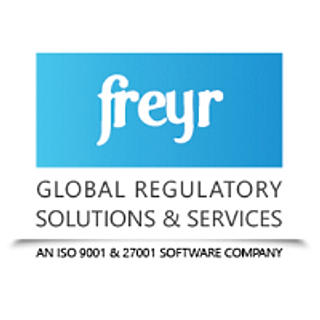EPR & Circular Economy: Role of Producer Responsibility
- Freyr Global Regulatory Solutions
- Jun 12, 2025
- 3 min read
With the rise in the global environment and increasing regulatory pressure, the shift from linear to circular economy for businesses across the industry has become a strategic priority. The circular economy aims to minimize waste and maximize material reuse, recycling and recovery. One of the most important regulatory measures to support industries as this model transitions is the responsibility of extended producers (EPR). What is EPR? The extended manufacturer's responsibility is a political approach in which manufacturers are responsible for the entire lifecycle of their products, especially towards the consumer stage. This means that not only does the manufacturer need to ensure the safety and performance of the product, but also ensure that the product is disposed of, recycled, or reused after eating it. Why is EPR important for the circular economy? EPR promotes waste reduction, resource efficiency and product lifecycle management. By being responsible for managing the environmental impact of products, EPR promotes product designs that are easier to reduce material consumption, such as recycling packaging, reducing material consumption, and using sustainable materials such as biodegradable plastics and recycled content. In fact, EPR can help close the product lifecycle loop and convert waste into resources. It is in good agreement with the principles of a circular economy that aims to keep materials and products running as much as possible, while simultaneously reducing pollution and environmental damage. Updates to current regulations to the EPR In 2024 and 2025, Italy, France and several US states have been working on extended producer liability (EPR) for packaging waste, which has resulted in the Circular Action Alliance (CAA) as a major producer organization (Pro) in several jurisdictions. California: Approved the Contamination and Packaging Producers Act (SB 54) in January 2024. The final regulations were expected until January 2026. Colorado: Again, the National Recycling Act Producer Responsibility Program submitted in May 2025 was submitted in February 2025 in public comments and reviews. The program is expected to be expected in 2026. Maryland: In October 2023, the CAA was selected to represent the producers of the State Council. The Council will submit its EPR recommendations by December 1, 2024. Minnesota: As part of the Packaging Waste and Cost Reduction Act, the MPCA was confirmed as an expert on February 18, 2025. Producers must join a registered expert by July 1, 2025. Oregon: As part of the recycling of the Modernization Act, the CAA was the only applicant to submit a program plan until April 1, 2024. The entire first EPR programme of July 1, 2025. France - From January 2022, sellers offering goods in France must follow new rules for extended producers (expansions) of the new Extended Producer Liability (EPR). Important EPR requirements According to the EPR framework, producers must: Register with a national or regional authority. Financial collection and recycling of used packaging or products. Report annually through product volume and recycling efforts. Consider eco-design and labeling rules and inform end users about how to dispose of them. Meet recycled content standards and recyclability goals in accordance with regulations such as the EU Packaging Regulations (PPWR). For example, in the EU, businesses need to ensure that packaging is recyclable by 2030 and that the goals for recycled content are reached. Similar regulations regarding the circular economy have emerged all over the world, ensuring compliance with EPR as an important industrial requirement. Industry affected by EPREPR regulations initially focused on packaging waste, but now extend to electronics, batteries, textiles and even pharmaceuticals. for example: Healthcare: EPR helps manage EPR of pharmaceutical waste and promotes sustainable packaging of medical products. Consumer Goods: Manufacturers need to redesign their products and packaging to be recyclable or reusable. Cosmetics and Body Care: Companies invest in materials and expand into the environment according to consumer recycling (PCR). Diploma EPR is more than just a compliance device. It is a strategic opportunity for businesses to become sustainability leaders. By integrating EPR into business activities, businesses can reduce their environmental impact, improve brand reputation, and contribute to wise contributions to global change in the direction of the circular economy. Freyr enables businesses to meet EPR requirements and meet sustainability throughout the product lifecycle. Freyr helps businesses to effectively implement their expanded Producer Responsibility (EPR) by providing expert directions on global packaging regulations and circular business standards. By assessing the recyclability of packages to ensure compliance with official compliance, Freyr supports businesses to implement sustainable practices, fulfill producer responsibility and maintain market access. Freyr ensures sustainable packaging compliance by supporting sustainable packaging innovation and helping businesses move to compliance with the EU, EU Green Deal, digital products. |











Comments